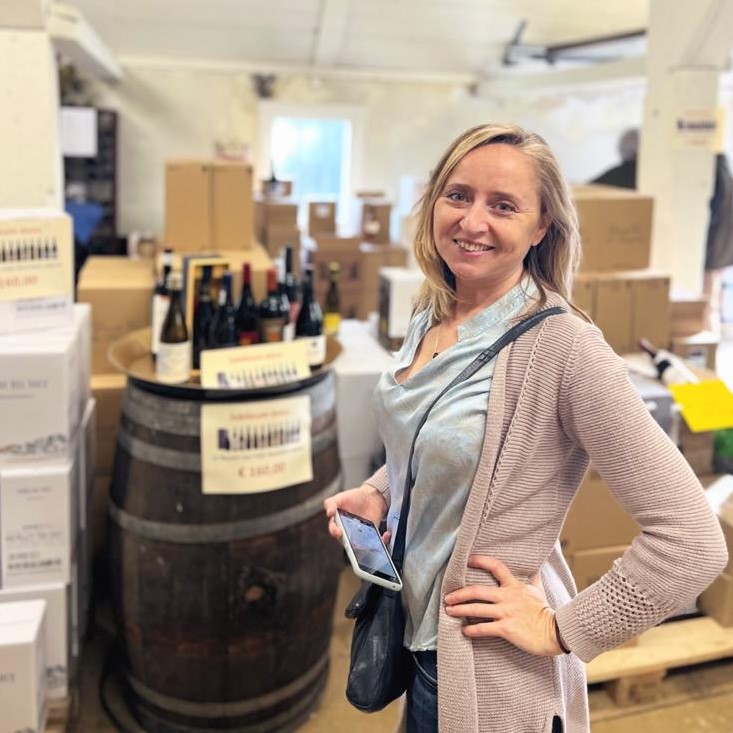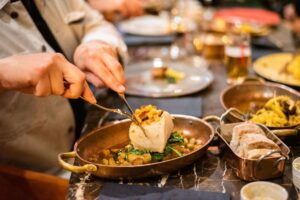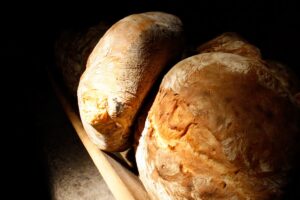Last Updated on November 26, 2025 by Emma Fajcz | Published: May 9, 2024
Whether you like your wine light and sparkling or your coffee strong and black, Portuguese drinks are true crowd-pleasers. Head to any one of Portugal’s many bars, cafés, or liquor stores and you’ll be able to indulge in what might just become your new favorite tipple.
Portuguese drinks are varied and unique. When it comes to wine, you’ll find Portuguese grape varieties that aren’t grown anywhere else, and styles that are exclusive to their regions. The same is true of the country’s spirits and liqueurs, with each area offering something special to finish a meal. And of course, if you’d prefer not to drink alcohol, you needn’t worry: we’ve got the lowdown on Portugal’s coffee, tea, and soft drinks. Saúde!
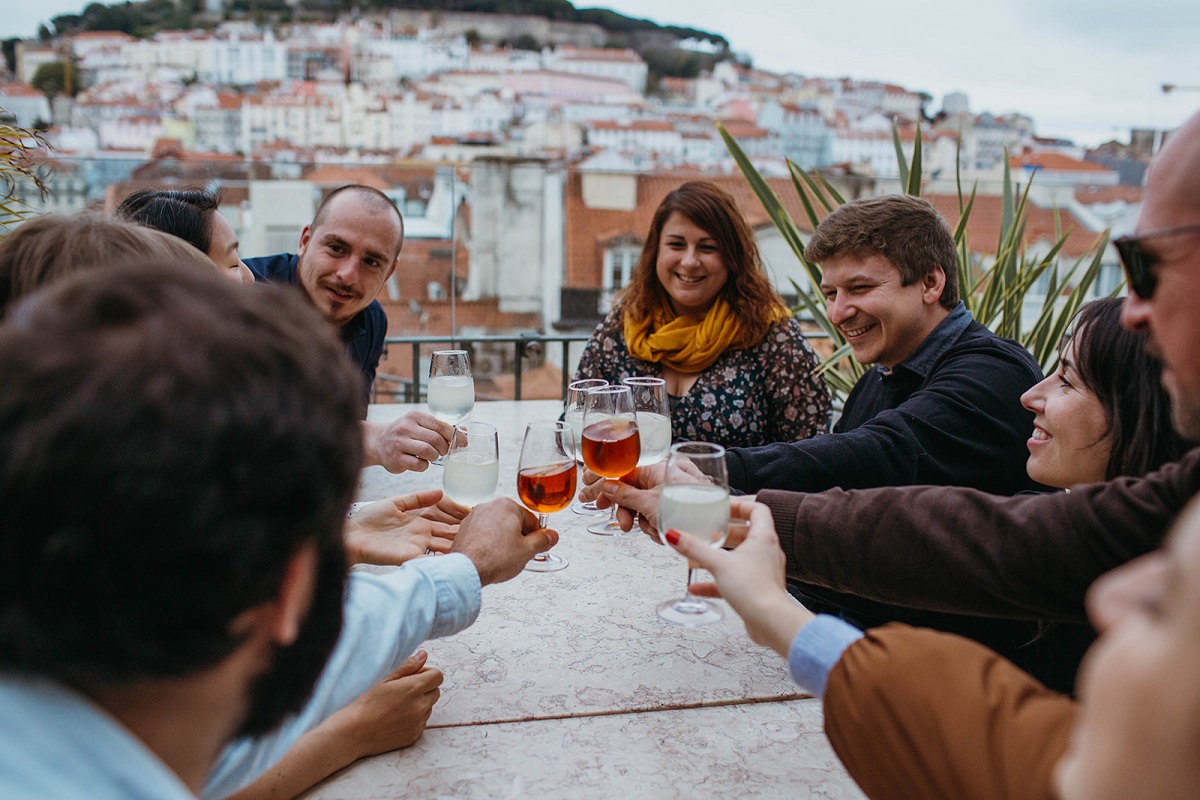
What's Included
Wines: Vinho Verde and regional reds
The weather in Portugal can be pretty warm, so you might be looking for something light and refreshing on a hot day. Enter Vinho Verde: literally translating as “green wine”, this young and crisp wine is high in acidity and low in alcohol – making it a very refreshing choice, especially with its slight sparkle on the palate. Classic white Vinho Verde is made from local grapes Loureiro and Arinto in the northwest of Portugal, but there are some local variations.
At the other end of the spectrum, Portugal’s long, hot summers mean there are plenty of full-bodied, ripely tannic red wines on offer as well. Touriga Nacional is the key Portuguese black grape variety, and it’s the backbone of many fantastic reds from the Douro and Dão regions. There’s so much to taste, it can be a little overwhelming! So be sure to consult our beginner’s guide to Portuguese wine.
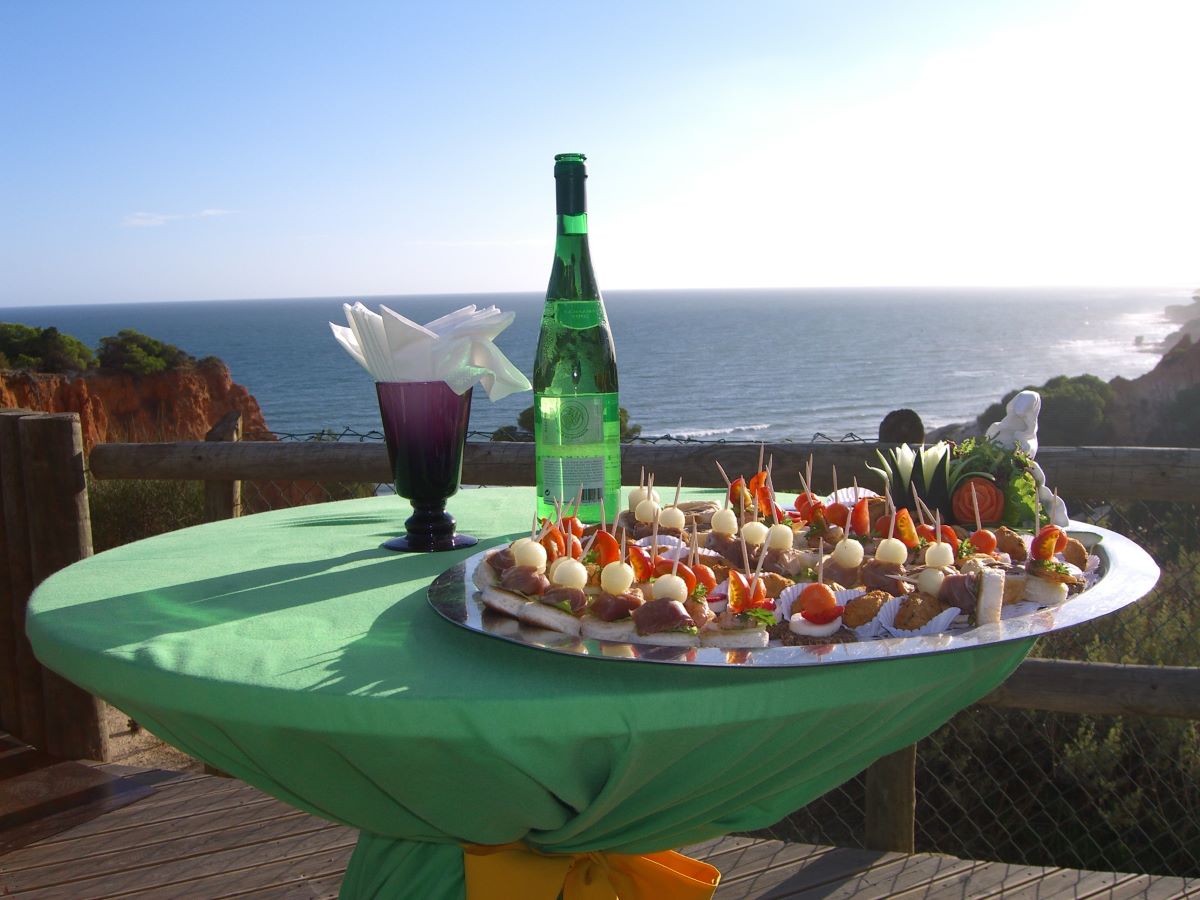
Fortified Wines: Port, Madeira and Moscatel de Setúbal
Much like its regular wines, Portugal also boasts different fortified wines depending on which region you’re visiting. In Porto (and of course elsewhere), you’ll find the famous port wine made from five local red grape varieties grown in the Douro region in the north of the country. It comes in Ruby, Tawny, and Vintage styles, but unless you’re familiar with port we suggest you do a port tasting to find the style you like best. Vila Nova de Gaia – the south bank of Porto’s river Douro – is awash with port houses to choose from, but we can certainly recommend Taylor’s for their tasting experience (watch out for the peacocks in the garden!).
Portugal’s fortified wines go further than port, however: the Portuguese island of Madeira is home to the fortified wine of the same name, which can be dry or sweet, and aged for three years up to several decades. Meanwhile, Moscatel de Setúbal comes from the Setúbal Peninsula near Lisbon. Made from Muscat grapes, this fortified wine is rich, sweet, and delicately perfumed.
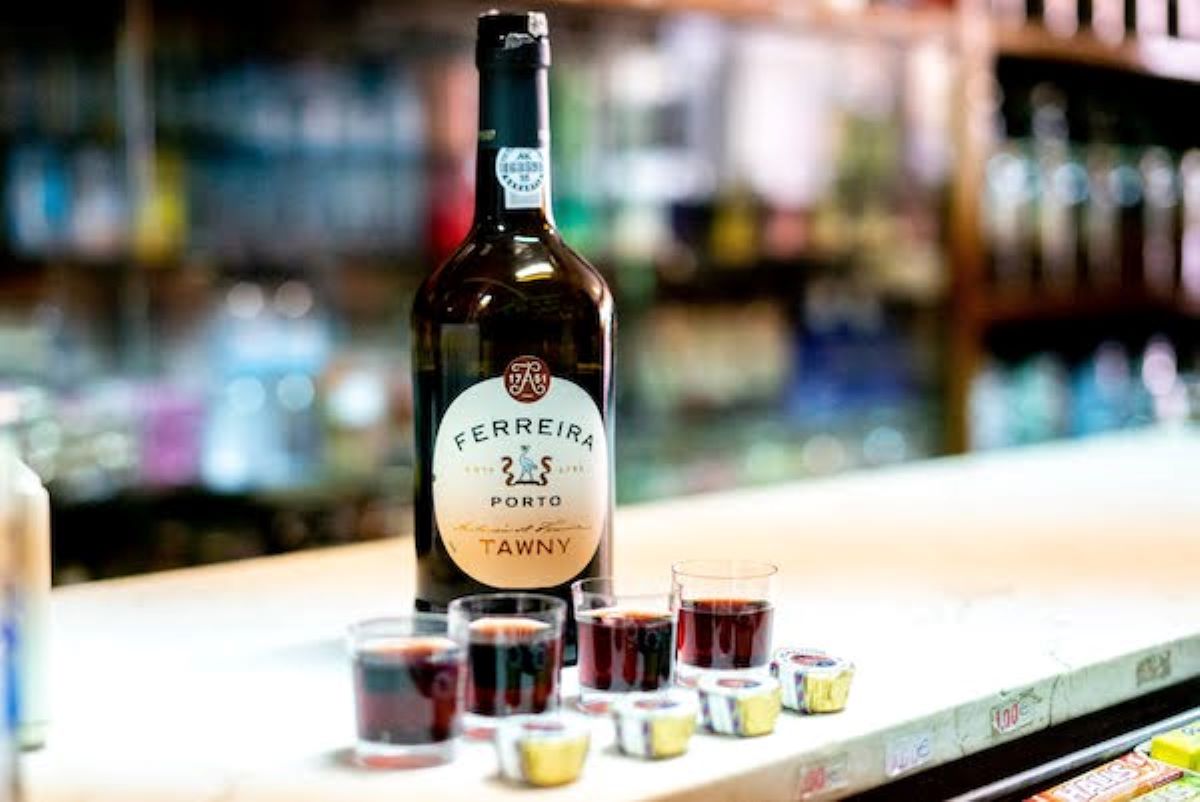
Spirits and liqueurs: ginjinha, aguardente, Licor Beirão and poncha
Looking for something a little stronger? Portugal has you covered there, too. When in Rome (or, in this case, in Lisbon) do as the Lisboetas do and pep yourself up with a shot of ginjinha (often shortened to ginja).
This local specialty is a sweet liqueur made from Morello cherries soaked in a distilled spirit known aguardente. If you’re so minded, you can actually drink aguardente by itself as a digestif, but it’s not to everyone’s taste: with up to 60% alcohol, you need a strong stomach to take on this Portuguese spirit! But back to the ginjinha, which is a lot more palatable: think sweet, spicy, and feisty – this little cherry shot is like an iron fist in a velvet glove.
Elsewhere in Portugal, you’ll also find Licor Beirão, a herbal liqueur originating from Beirão in the country’s central region. It’s sweetly aromatic, distilled from seeds and herbs, including mint, cinnamon, cardamom, and lavender. You may never have heard of it, but of all the Portuguese drinks, it’s officially the most consumed alcoholic spirit in Portugal.
If you prefer your spirits in an easy-drinking cocktail, look no further than Madeira’s fruity but lethal island punch: poncha. A heady mix of sugar cane rum, honey and either lemon juice or orange juice (depending whether you order a Poncha Pescador or a Poncha Regional), it feels almost medicinal with all that citrus and honey. That is, until the next morning…
Make sure to try this traditional Portuguese drink that can’t be found anywhere else. Photo credit: Gerd Eichmann
Coffee and tea
Speaking of the next morning, you may well be in need of a restorative Portuguese coffee. Depending on how strong or how milky you like your morning cuppa, you’ll want to order a bica (espresso), pingado (espresso with a splash of milk), abatanado (long black coffee) or galão (long white coffee). In fact, there are at least a dozen different types of café in Portugal, so we suggest you read our Portuguese coffee primer so you can order yours like a local.
Prefer tea? A cup of Portugues chá will set you right – with black and herbal loose teas on offer.
A day exploring Lisbon should always begin with warm coffee and a fresh pastry.
Beer: Sagres and Super Bock
While you will find independent craft breweries in Portugal (we love 5 e Meio in Ericeira), there are two big names in Portuguese beer that you’ll see absolutely everywhere: Sagres and Super Bock. The most popular beer brands in Portugal, they don’t limit themselves to just lager. If you’re visiting Lisbon, you can try several unique brews at the Super Bock Experience in the Time Out Market, including Bengal Amber IPA, Czech Golden Lager, Munich Dunkel, and Bavaria Weiss.
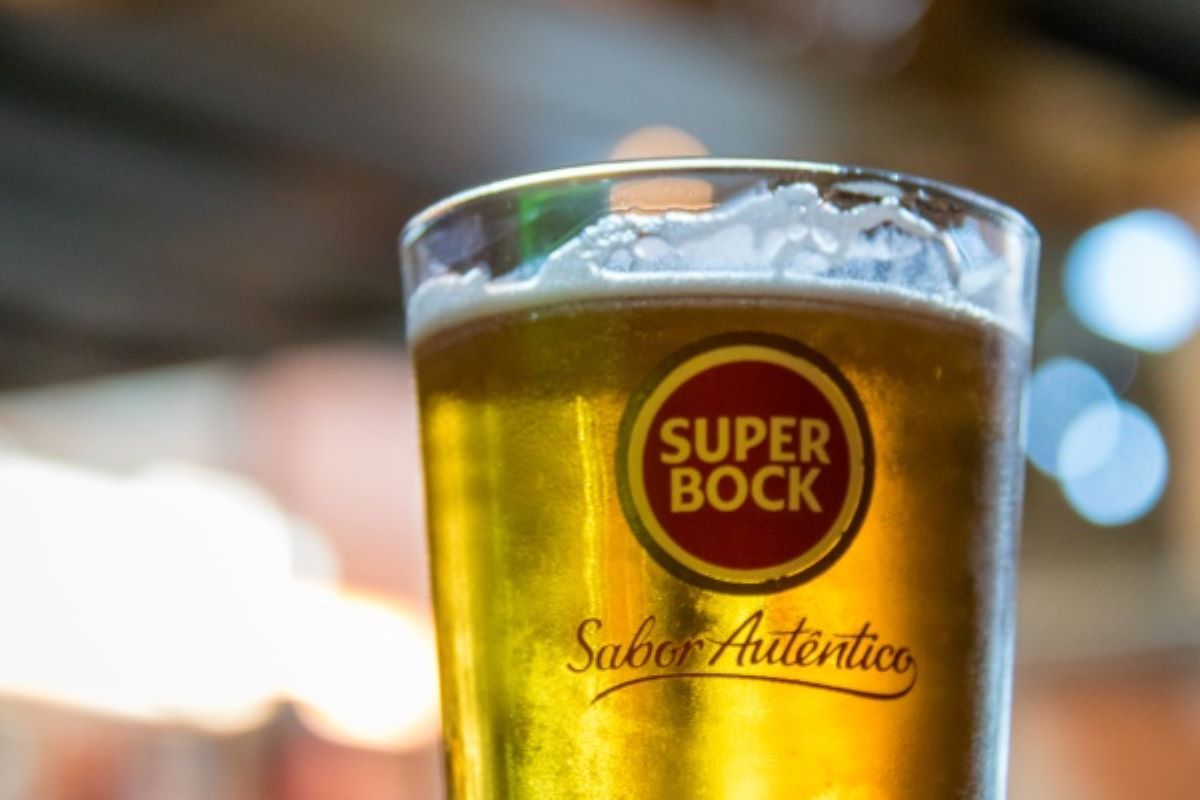
Soft drinks: Sumol and Laranjada
And finally, you might be ready for something non-alcoholic by this point. In that case, get your hands on a refreshing Sumol: a fruity soda that comes in several flavors, including orange, pineapple, and passionfruit. Alternatively, do as the locals do and order a sweet, tangy, orange-flavored Laranjada – famously older than Coca-Cola and the first soft drink to be produced in Portugal.
Want to taste some Portuguese drinks for yourself? Why not join our one of our Lisbon Food Tours – you’ll get to try a little bit of everything, including the perfect drinks pairings with every bite.
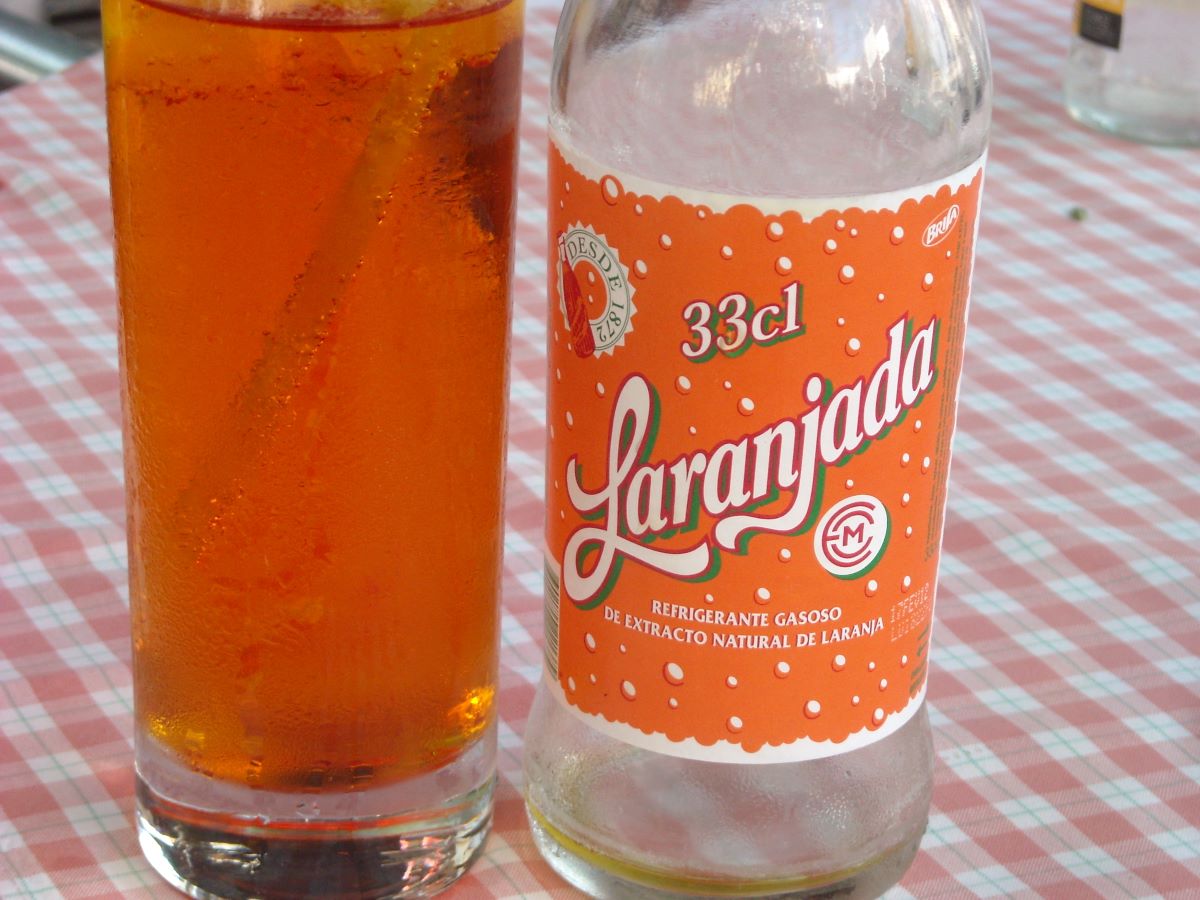
From the syrupy Port wines to a glass of crisp Vinho Verde, Portugal has a lot to offer in terms of unique beverages. Thankfully, the only thing difficult about trying these Portuguese drinks is deciding on which one is your favorite. Let us help you dig deeper into the local drink scene with one of our small-group tours. On our Tastes & Traditions of Lisbon Food Tour, our local guides give you the insider scoop on how to eat and drink in Lisbon like a local.
